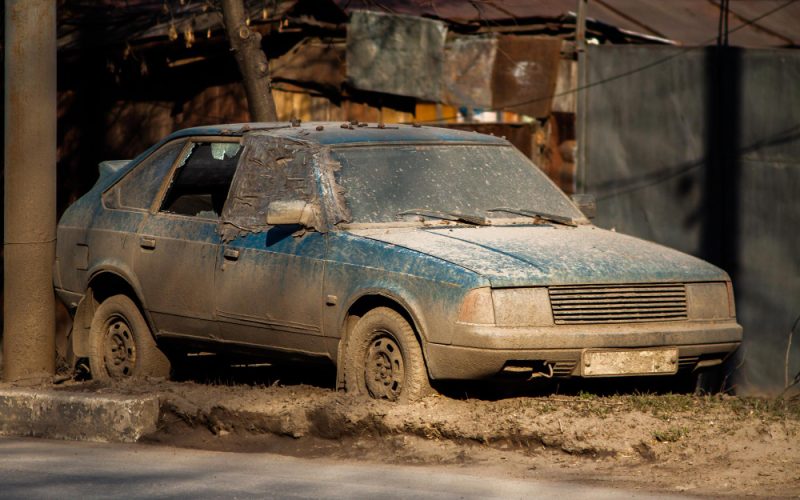If you have an old, unwanted car sitting in your driveway or on your property, you might be thinking, “It’s not doing any harm just sitting there.” But the truth is, letting an unused car rot away can cause significant environmental damage over time. In Australia, where millions of vehicles are registered each year, the impact of abandoned and neglected cars adds up quickly.
This blog explains why it’s important not to leave old vehicles unattended and how responsible car disposal can help protect the environment, reduce pollution, and even return some value to you.
Why Abandoned Cars Are a Problem
When cars stop running and are left unused, they slowly break down. But this breakdown doesn’t just affect the car—it affects the environment around it too. Old vehicles contain fluids, chemicals, and materials that become dangerous when left to leak into soil or waterways. That’s why services like Cash For Unwanted Cars Caboolture are important—they help remove these vehicles safely and responsibly, preventing environmental damage while putting extra cash in your pocket.
In Australia, state and local governments often deal with hundreds of reports of abandoned vehicles each year. According to data from the Department of Transport, local councils collectively remove thousands of unregistered or abandoned cars annually. These vehicles don’t just look messy—they’re often environmental hazards.
Leaking Fluids Can Contaminate Soil and Water
Even a car that seems clean on the outside can leak dangerous fluids from inside. Common examples include:
- Engine oil
- Coolant
- Brake fluid
- Petrol or diesel
- Transmission fluid
These fluids often contain heavy metals and toxic chemicals. If a car is left outdoors, rain can wash these pollutants into nearby storm drains or groundwater. This can affect drinking water and damage local ecosystems.
For example, one litre of engine oil can contaminate up to one million litres of water, according to Australia’s Used Oil Recycling Program. That’s why leaving a vehicle unattended—even for a few months—can lead to long-term environmental issues.
Battery and Tyre Breakdown Releases Harmful Substances
Batteries in old cars may leak acid and lead as they degrade. Both of these are toxic. If not removed and disposed of properly, they can seriously harm wildlife and people who come into contact with them.
Tyres also break down over time and release microplastics into the ground. These small plastic particles can be carried by wind or rain and eventually end up in rivers and oceans. Australia’s CSIRO has identified tyre particles as one of the key sources of microplastic pollution in marine environments.
Rust and Corrosion Add to the Problem
As cars age, their metal frames start to rust. This might seem like a natural process, but it has consequences. Rusted metal can flake off and mix with soil, changing its chemical balance. It also releases iron oxides and other substances that affect plant growth and water quality.
Rust also weakens structural components, making the vehicle unsafe for anyone who might interact with it—especially kids who see it as a place to play.
Wildlife Risks and Health Hazards
An abandoned vehicle can attract insects and animals looking for shelter. Rodents often nest in car seats or under hoods. In some areas, snakes and spiders may also take cover in or under unused cars.
This creates a risk for pets, children, and anyone who comes near the car. Plus, stagnant water inside or around the vehicle—like in tyres or floor wells—can become breeding grounds for mosquitoes. This increases the risk of mosquito-borne diseases like Ross River virus, which is already present in parts of Australia.
Visual Pollution and Property Value
While it may not be a chemical hazard, an old car left to rot can hurt your property’s visual appeal. If several cars are abandoned in a neighbourhood, it can reduce local property values. In fact, some Australian councils issue fines or remove vehicles that are considered a public eyesore or health risk.
For example, the City of Sydney can issue a removal notice if an unregistered vehicle appears to be abandoned and has not moved for several weeks. Councils in other regions have similar rules, which are designed to protect both the environment and community standards.
The Cost of Doing Nothing
Doing nothing might seem like the easiest choice, but the long-term effects—on the environment, your health, and your wallet—can be serious. Here’s a summary of the costs involved:
| Impact | Environmental Cost |
| Fluid leaks | Soil and water contamination, toxic runoff |
| Battery and tyre breakdown | Lead pollution, microplastics, acid leaks |
| Rust and corrosion | Soil imbalance, unsafe surfaces |
| Wildlife hazards | Spread of disease, danger to pets and children |
| Visual pollution | Lower property values, council fines |
What You Should Do Instead
If you’ve got an old car sitting around, it’s better to take action sooner rather than later. Here are some simple steps:
- Contact a licensed car removal service: These services will pick up your car for free and ensure it’s disposed of responsibly. Learn more
- Ask if parts will be recycled: Most reputable services strip usable parts before scrapping the body.
- Avoid backyard dumping: Never leave a car in bushland or open land—it’s illegal and environmentally harmful.
- Check with your council: Some offer vehicle recycling support or removal notices if a car is on public land.
Choosing to remove and recycle your vehicle not only helps protect the environment, but it can also earn you some cash. Even cars that don’t run are worth something because of the metal and parts inside them.
Final Thoughts
Letting an old car rot away may seem harmless at first. But over time, it becomes a serious threat to your local environment and community. Fluid leaks, battery damage, and rust can cause real harm—often silently, over months or years. By removing your car responsibly, you’re doing more than cleaning up your property—you’re helping Australia reduce waste and protect natural resources.
Learn more on our blog.












